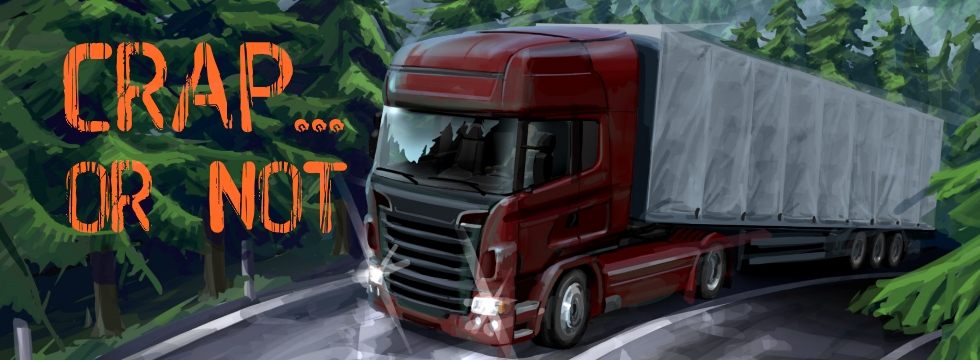Criticized yet adored – games that lost to the critics but won the hearts of gamers
You know that feeling when your favorite game is getting panned by critics? So do we; that’s why we’ve prepared a list of games that - despite mediocre reviews at launch - are adored today.
I suppose we all know games like that. Productions we recall with tears of nostalgia, even though the rest of the world thinks they’re crap. Game reviewers are not always unanimous either, and there are times when we shake our heads seeing a production that, despite obviously being brilliant, gets utterly panned by our peers. That's why we've decided to take a closer look at this phenomenon.
We have prepared a short list of cases in which there’s a striking discrepancy between the scores given by professional critics and those given by gamers. Turns out that such cases are fewer than one might expect – forcing us to rely on some rather antique examples, including a few completely forgotten titles.
Before we move on to discuss the items on our list, let's try to answer a single question: why do such situations even occur? Rarely is it simply a matter of coincidence or taste. Even a relatively poor game may become iconic thanks to the modding community. Sometimes, the title gains value over time, if it remains a one-of-a-kind game for years. Some other times a game can be so far ahead of trends that on release its originality is simply too much for critics and gamers alike. It also happens – and it’s the most common case – that at the time of release the game is unplayable, leading to poor reviews, but after a few months and a number of updates the ratings are rising, because, well... the game finally works. The players may love the updated game, but no one can change the scores that have already been given.
Of course, each case is unique and the reasons behind diverging opinions are not limited to the several aforementioned scenarios – all games appearing in the article will be discussed separately. The order in which the games are listed is random.
Contrast
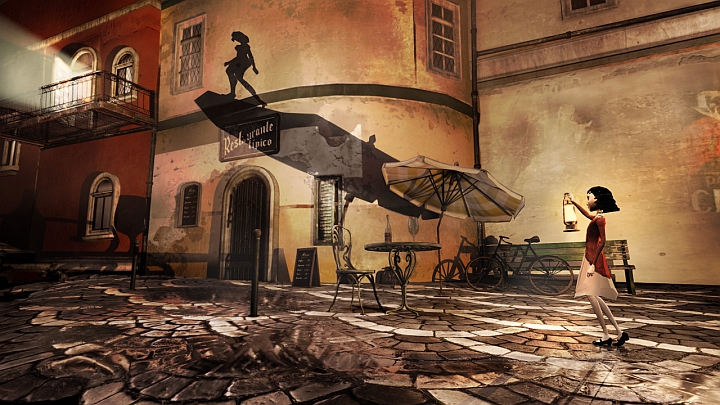
Contrast in numbers:
- Average rating on Metacritic: 59-65% (depending on the platform)
- Average rating on GameRankings: 59-65% (depending on the platform)
- Positive reviews on Steam: 90%
- User score on GamePressure.com: 9.0 (PC), 8.0 (PS4)
Contrast was one of the pioneers of indie gaming on 8th-generation consoles – for many, this atmospheric platformer was the most interesting not-AAA game released on PlayStation 4 (and in general). Eventually, the work from Compound Games turned out to be a case somewhat similar to the recent The Last Guardian.
There was consensus among the critics that the game shines when it comes to the distinctive noir climate, the melancholy narrative and the gameplay premise in general (involving the creation of platforming challenges by manipulating light and shadow). The reviewers, however, weren't enthralled enough to turn a blind eye to the fact that the adventure is very short, and to the numerous technical shortcomings, including crude controls and frustrating save game system.
However, with time, the faults began to fade away, and more recent players’ opinions focus on emphasizing the undeniable assets of this game. Although the naysayers might say that this is mainly due to the game becoming available for free as part of PlayStation Plus subscription...
Gothic 3
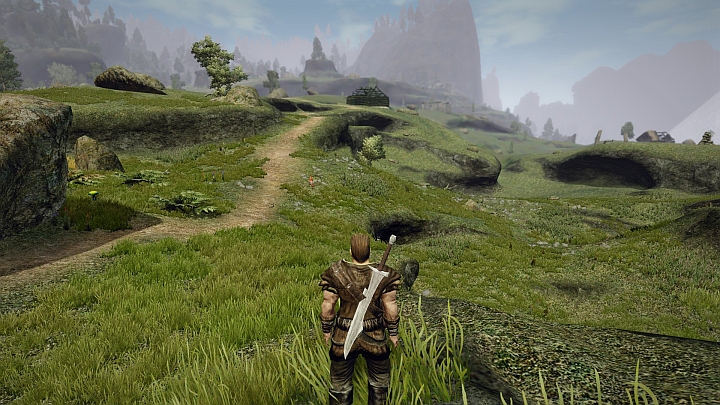
Gothic 3 in numbers:
- Average rating on Metacritic: 63%
- Average rating on GameRankings: 64%
- Positive reviews on Steam: 81%
- User score on GamePressure.com: 8.5
It's hard to get a clearer example of how twisted the fate of a video game can be than the case of Gothic 3. We've all been there – giant expectations followed by equally giant disappointment when the game turned out to be a tempting but virtually unplayable pile of broken dreams. Many professional reviewers voiced their disappointment at the time.
Though many a critic was swept away by the adventure taking place in a beautiful, climatic setting, most of them panned Piranha Bytes' work for delivering a vast ocean of bugs and glitches and hopeless optimization, among other issues, including such aspects as mediocre quest design or clumsy combat mechanics. But time has proved to be a very effective remedy for the ills plaguing the third chapter of the adventures of the Nameless Hero.
Once the players inevitably modernized their rigs over the years, and the title itself lived to see a million patches (especially those prepared by the fans themselves), Gothic 3 could finally appear in all its glory – and the fact was appreciated. Although not without significance was also the fact that its continuation – Arcania: Gothic 4 – turned out to be an even greater failure than G3 ever was, and drew the curtain (for now, at least) on the iconic RPG series.
Leisure Suit Larry: Reloaded
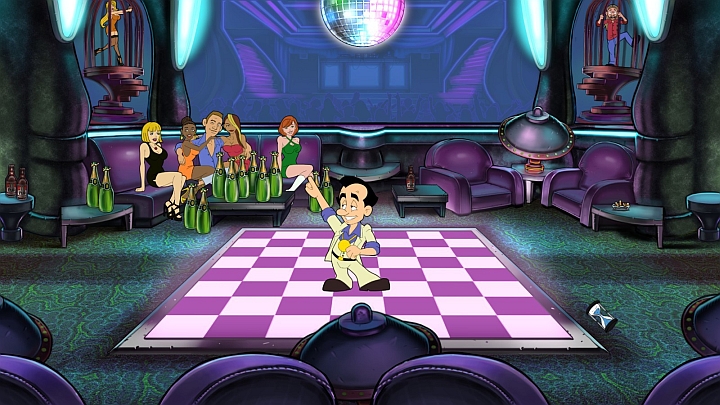
Larry: Reloaded in numbers:
- Average rating on Metacritic: 56% (PC)
- Average rating on GameRankings: 55% (PC)
- Positive reviews on Steam: 80%
- User score on GamePressure.com: 8.0 (PC)
The Leisure Suit Larry series is one of the better examples illustrating how video games have changed over the past three decades. And Larry: Reloaded itself (also known under its full title – Leisure Suit Larry in the Land of the Lounge Lizard: Reloaded) is the best example among all the iterations of the said cycle.
In fact, the reviewers agreed that it’s a nicely crafted project and a worthy remake of the classic point-and-click adventure game released in 1987. It's just that more than one critic felt the obligation (a moral one, perhaps?) to hammer the game for sexism and sophomoric humor featured in the game. Many others were discouraged by the frustrating, archaic gameplay solutions.
That's why only a relatively small group of players felt the need to actually play the game, among them mostly the ardent fans of the old installments of the Leisure Suit Larry series – and for them, said elements could only be counted as pros, increasing their satisfaction with the quality of the game (and its subsequent score).
Deadpool: The Video Game
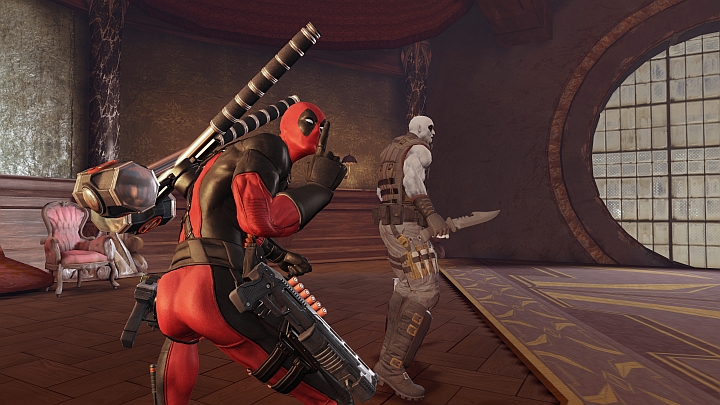
Deadpool: The Video Game in numbers:
- Average rating on Metacritic: 60-63% (depending on the platform)
- Average rating on GameRankings: 58-66% (depending on the platform)
- Positive reviews on Steam: 91%
- User score on GamePressure.com: 8,7-8,9 (depending on the platform)
As was the case with the aforementioned Larry, they key to understanding the phenomenon of Deadpool lies in its obscene content – but that's also where the similarities more or less end. This time neither morality nor lack of understanding for the unique, naughty sense of humor of the eponymous character were a factor weighing on the critics' opinion about this game as it was with the previous case. The reviewers were simply unimpressed with the average gameplay mechanics and a short and mildly interesting (for them at least) adventure, which prevented them from singing praises to the work of High Moon Studios.
The players, on the other hand – even though many of them noticed the same flaws in level design and combat system – were able to completely forgive them. All thanks to the brilliant dialogues and cut-scenes featuring a powerful load of humor (a bit crude perhaps, but still funny), which perfectly reflected the original comic, and not only hit the spot for the long-term Deadpool fans, but also earned him a large group of new enthusiasts. Including yours truly.
Euro Truck Simulator
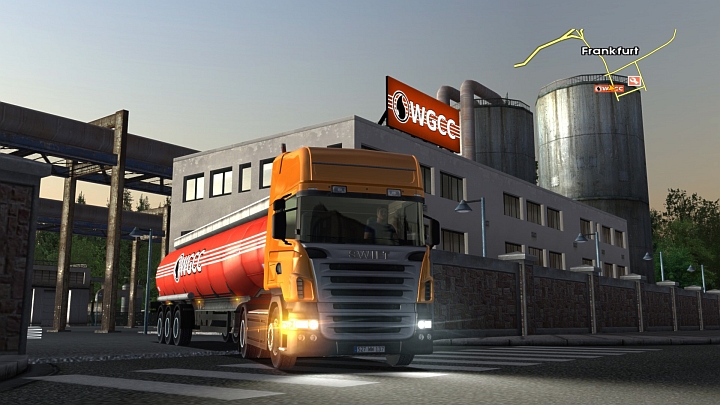
Euro Truck Simulator in numbers:
- Average rating on GameRankings: 57%
- Gamepressure.com review score: 3.5
- Positive reviews on Steam: 80%
- User score on GamePressure.com: 8.2
Remembering such solid titles as Euro Truck Simulator 2 and American Truck Simulator, it’s hard to imagine that the previous truck simulator from SCS Software could be ripped apart by its critics. Still, the second installment in the series is A LOT better than the first one, and nothing proves this more that the professional reviews of the games.
The critics had no mercy for the cranky driving model, the crude map of Europe, sometimes drawn with unforgivable errors, simple economy and other imperfections. Not without significance was also the fact that ETS appeared to them as a shoddy rip-off of other truck-starring games, produced by the Czech developer by the bushel at the time.
And how did the players respond? They were aware of the game's shortcomings, but were willing to turn a blind eye on them, as they didn't interfere with what was the most important to the gamers – the pleasure of driving a truck. Not without significance were also the fresh European landscapes (up to that point SCS focused on America), as well as the prosaic fact that at the time the market offered few good alternatives for fans of trucking.
Goat Simulator
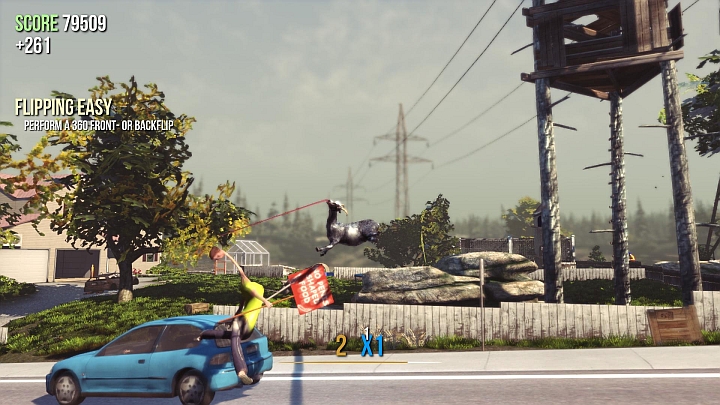
Goat Simulator in numbers:
- Average rating on Metacritic: 53-68% (depending on the platform)
- Average rating on GameRankings: 53-68% (depending on the platform)
- Positive reviews on Steam: 89%
- User score on GamePressure.com: 7.9 (PC)
And here is yet another "simulator" – although so very much different from the previous one. The problem with reviewing Goat Simulator is that a completely nonsensical game had to go through the hands of no-nonsense people – i.e. the critics – who had to treat it with all seriousness. They might have even liked the stunt pulled off by Coffee Stain – after all the whole game is one big prank – and smiled honestly watching this development-hell-on-Earth with a goat in its very heart, but the final verdicts boiled down to cold calculation. And cold it was indeed.
It was difficult to honestly recommend a title offering a few (at most) hours of foolish fun for more than a dozen euros. However, many players were eager to appreciate the idea – obviously, having first listened to the voice of reason and buying the game only after the price was reduced. If we treat Goat Simulator as a mere curiosity, which can be used to just relax for fifteen minutes, it is hard not to give it a thumbs up. That's magic of the unpredictable indie market for you.
The I of the Dragon
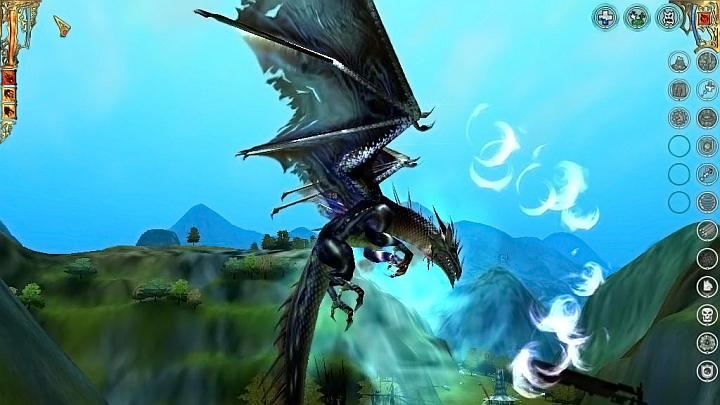
The I of the Dragon in numbers:
- Average rating on Metacritic: 55%
- Average rating on GameRankings: 59%
- Positive reviews on Steam: 67% (due to technical issues with the Steam version)
- User score on GamePressure.com: 8.6
OK, this game is by far more likely to deserve the simulator label – but only if it were released today. At the time of its actual launch, however – i.e. at the very beginning of the 21st century – it was described simply as a third-person action game with RPG elements; the game itself had us defend a magical fantasy world from a horde of monsters as a dragon. Yeah, that's a simulator right there, no doubt about it.
Given that it's hard to find a decent game starring those majestic creatures these days (as playable characters, that is, not shoe material), it's no surprise that The I of the Dragon enjoys great appreciation in certain circles. Though the "average score" on Steam is not a good indication in this case, because many negative reviews are coming only from the fact that the Steam version of the game was plagued by a lot of technical problems.
Were we to sieve out the opinions determined by that single factor, there would hardly be any players taking shots at the work from Primal Software for the same things the reviewers disliked years ago: inconvenient controls and boredom that creeps into the gameplay in the long run.
Mount & Blade: With Fire and Sword
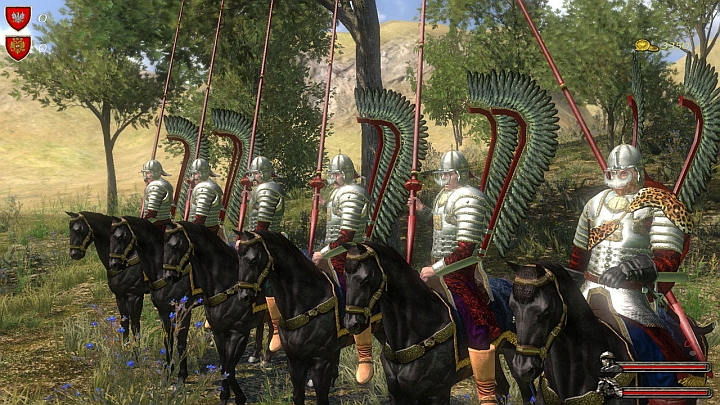
Mount & Blade: With Fire and Sword in numbers:
- Average rating on Metacritic: 68%
- Average rating on GameRankings: 67%
- Positive reviews on Steam: 85%
- User score on GamePressure.com: 8.7
In the case of Mount & Blade: With Fire and Sword, it's not exactly as if the game were poorly rated – all in all its scores, bordering on 70%, are hardly low. Today, however, they seem to sharply contrast with the cult following the whole series, especially given the sky-high expectations for the upcoming second installment (Bannerlord).
The summaries of almost all reviews of With Fire and Sword include one common theme that justifies the limited enthusiasm of the journalists – repetitiveness in comparison with the previous iterations, especially with the much better scored Warband. For the numerous fans, though, that factor was obviously irrelevant.
Changing the setting from the fantastic realm of Calradia to the 17th-century Europe and adding firearms while maintaining Mount & Blade's characteristic sandbox freedom and mod support was enough for the game to draw the players in for long hours. Not to mention Polish players, who were obviously ecstatic about the whole thing... It should also be mentioned that the first installment in the series – today an absolute classic – didn’t win the hearts of critics at the time of its release either (average score of reviews barely exceeds 70%).
Hammer & Sickle
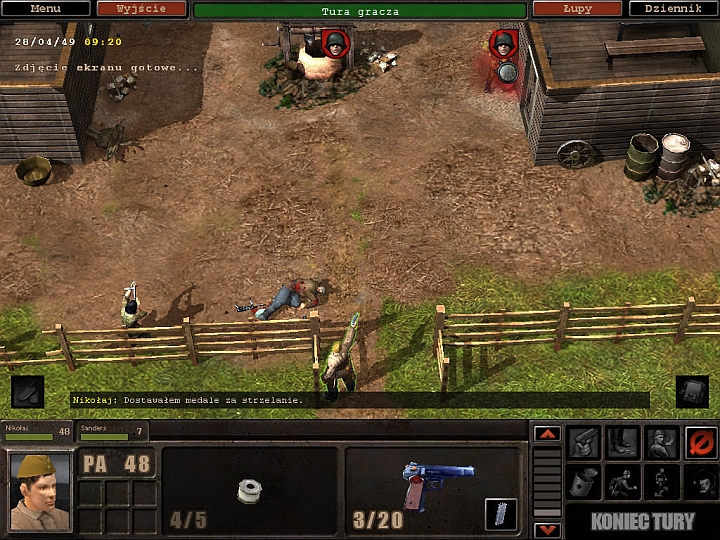
Hammer & Sickle in numbers:
- Average rating on Metacritic: 52%
- Average rating on GameRankings: 57%
- Positive reviews on Steam: – (unavailable on Steam)
- User score on GamePressure.com: 8.0
Hammer & Sickle is yet another example proving that players' attachment to a dying-out genre can mean more than review scores. After all, we're talking about what may have in fact been the last ever RTT game set in modern age (in 1949, to be specific) – a game related to the iconic Commandos series, which in turn was the spiritual heir to the Silent Storm franchise.
The journalists found a lot wrong with this game, including a ridiculously high level of difficulty, crude game mechanics (especially sneaking), tedious narrative and an abundance of bugs. A large group of players, though, oblivious of the warnings, gave Hammer & Sickle a shot, and they were not disappointed.
Tactical gameplay in the 20th-century setting, featuring some RPG elements to boot, is something rarely seen today, and for many it was a treat enough to turn a blind eye to the game's shortcomings. Unfortunately, today Hammer & Sickle is mostly forgotten – and all it would take for it to reclaim its former glory is to make it available in digital distribution...
Pirates of the Caribbean
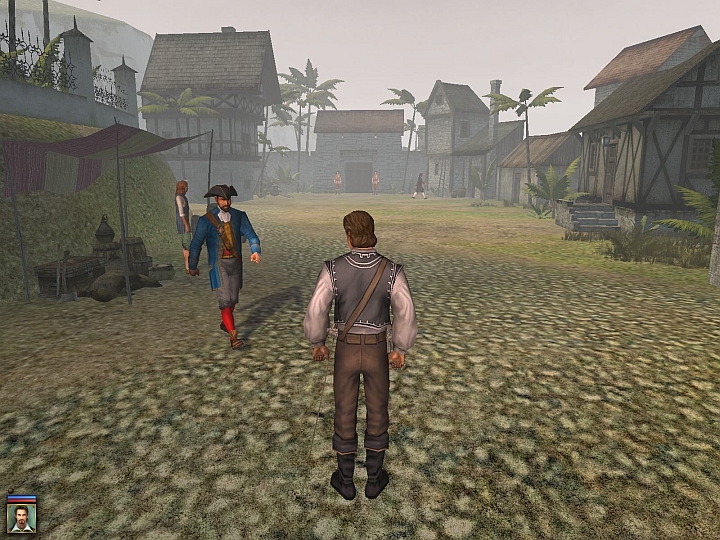
Pirates of the Caribbean in numbers:
- Average rating on Metacritic: 64% (PC)
- Average rating on GameRankings: 67% (PC), 69% (Xbox)
- Positive reviews on Steam: – (unavailable on Steam)
- User score on GamePressure.com: 8.6 (PC)
The history of video games shows that players like elaborate productions that involve vessels traversing big, open worlds. And while today the demand for such games is satisfied primarily by space sims, some ten years ago, the genre shared the market with titles that approached the subject in a more traditional manner. One of them was Pirates of the Caribbean or, as it was known to some, Sea Dogs II.
As I said, at the beginning of the 21st century, such a mix of adventure, action and strategy set in historical maritime setting was hardly uncommon, so the reviewers weren't holding their punches with the criticism. The work of Akella was reprimanded mainly for the underdeveloped world design, poorly conceived interface, clunky controls, and numerous glitches.
And the players, as it was with other previously described cases, focused on what was the best in Pirates of the Caribbean – the climate, the freedom and the myriad of available activities. Unfortunately, after Hammer & Sickle, it’s another game that may be soon forgotten because of the lack of prospects for appearing in digital distribution.
Postal 2
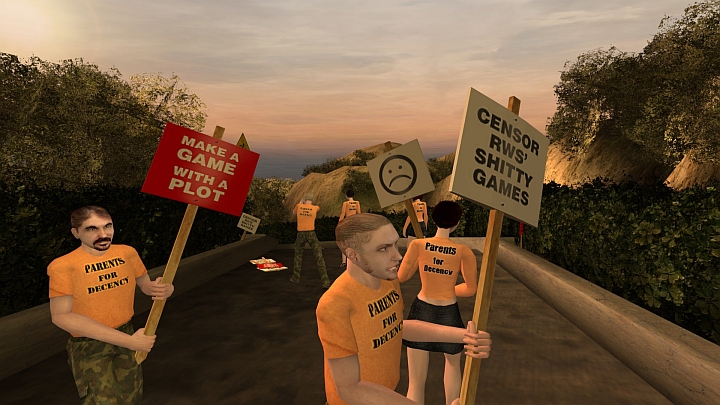
Postal 2 in numbers:
- Average rating on Metacritic: 50% / 59% (Share the Pain)
- Average rating on GameRankings: 59% / 61% (Share the Pain)
- Positive reviews on Steam: 95%
- User score on GamePressure.com: 8.1
Given how we've seen an appeal to morality when discussing Leisure Suit Larry: Reloaded, our list wouldn't be complete without this game – a game that's been a nightmare for any anti-video games crusader for the last thirteen years.
Postal 2 was created for one purpose – to generate as much controversy as humanly possible – and it did an outstanding service to that goal. Some critics, in recognition of the sick artistry of the team at Running with Scissors, awarded the game with the lowest possible score. Other reviewers, having less sensitivity to obscene ideas, limited themselves to pointing out mediocre AI, frustrating loading screens, crude shooting mechanics or virtually non-existent plot. Which would be enough to move the production beyond the range of any awards and other honors. Meanwhile, the players...
Well, the players could only love a game as controversial as this one – from sophomoric humor (parodying phenomena typical of the American society) and all the way to its outright legendary brutality. In other words, things went more or less the same way as with Deadpool, only up to eleven.
Original War
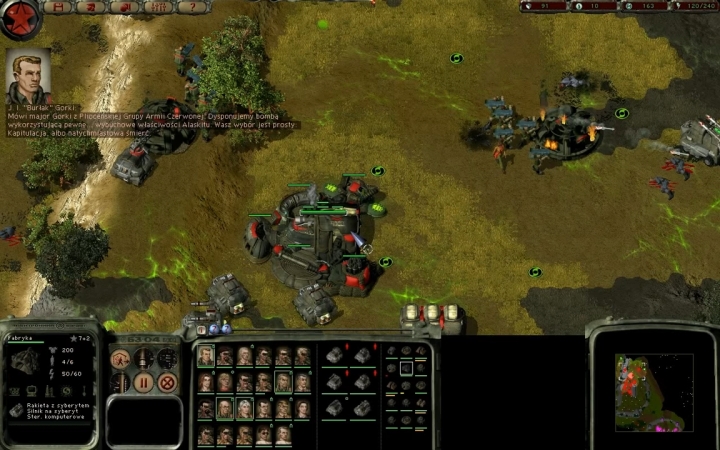
Original War in numbers:
- Average rating on Metacritic: 61%
- Average rating on GameRankings: 67%
- Positive reviews on Steam: 93%
- User score on GamePressure.com: 8.8
One of the oldest games on our list – released back in 2001 – and one of the more original ones. In Original War's case, though, it's difficult to explain the discrepancy between the opinions of the players and reviewers as something more than a matter of taste.
For many PC gamers, it's one of the more memorable games of their teenage years, loved primarily for combining a solid gameplay premise of a classic RTS with RPG elements (related mainly to the limited pool of personalized units, and a rather extensive, non-linear plot), as well as for the uncommon setting. After all, how often do we see a ??war between the US and the USSR waged, due to an uncontrolled time travel, in the age of mammoths?
Somehow, what evokes such warm memories in so many players met with cold (at best) reception from the reviewers – if not outright condemnation. Where's the reason, where the logic? After so many years it's impossible to find out.
Farming Simulator 2013
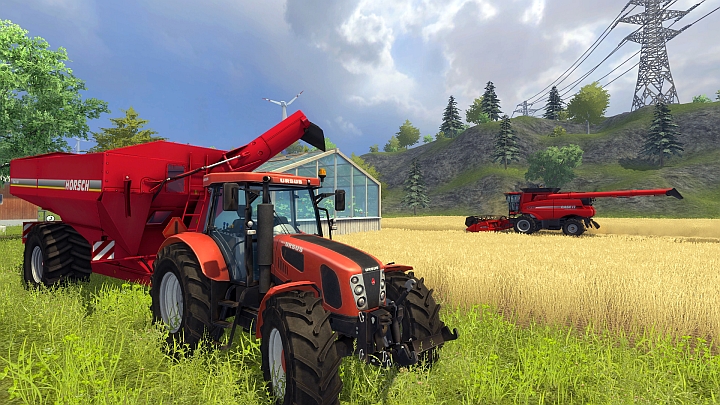
Farming Simulator 2013 numbers:
- Average rating on Metacritic: 65%
- Average rating on GameRankings: 65%
- Positive reviews on Steam: 92%
- User score on GamePressure.com: 8.6
Although the headline mentions just a single title, the final entry of this article can, as a matter of fact, be seen as dedicated to the whole category of so-called "farm simulators". Name any single game from this genre – the situation is more or less the same in every case.
In theory, we are dealing with a title that realistically depicts the various duties of a man who has devoted his life to agriculture; in practice, though, the authentic and sometimes even informative experience is ruined by a number of issues, such as broken physics, crude mechanics (e.g. economy), boredom, or mediocre audiovisuals. And yet thousands, if not millions of players, spend hundreds of hours playing these game, especially those from the Farming Simulator series. Why is that?
I think the explanation is similar to the situation of Euro Truck Simulator – the consumers don't care that each subsequent installment comes with a truckload of issues (which, what’s worse, are fixed very slowly), because they simply love virtual agriculture, and have no better alternatives than the work from Giants Software. But perhaps the upcoming Pure Farming 17: The Simulator from Techland will invite some welcome change to this stagnant market?
